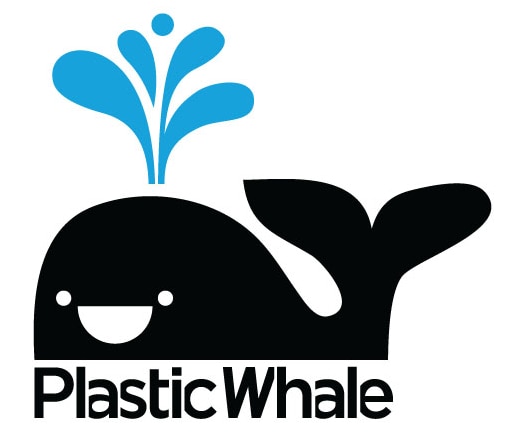Social enterprise Plastic Whale has set itself the mission of achieving plastic-free waters, worldwide. It works towards this goal by demonstrating how economic value can be created from plastic waste and by involving as many people and businesses as possible within the three pillars of ‘We Collect’, ‘We Create’ and ‘We Educate’. Plastic Whale grew rapidly from a novel idea in 2011 to a fully functioning business model, a swift success that meant the company reached the limits of that model. Supported by dedicated advice from Strategy&, Plastic Whale sought ways to scale up its collection and creation opportunities.
The founder of Plastic Whale, Marius Smit, had a lightbulb moment after seeing the plastic problem up close and personal when travelling 15 years ago. The morning after a tropical storm he saw that a beach which was perfectly clean the night before had been completely covered in plastic waste.
“This was when Marius realised the huge scale of the plastic waste problem and how omnipresent it is,” says Sarah de Beurs, head of the Plastic Whale Foundation since 2018. “After doing some research, he found out that you could turn PET bottles into foam plates to build boats from plastic waste. Marius determined to create a movement of people who all want to positively contribute to making the future plastic-free, and that’s how the story of Plastic Whale began.”

‘Man on the moon’ challenge
Social media was increasingly becoming a force to be reckoned with at this time and Marius saw that he could use that to his advantage to get the plastic challenge up and running quickly. “Inspired by JFK’s 1961 ‘man on the moon’ speech, he set himself the task of doing something spectacular to inspire others to move forward with him,” Sarah continues. “Marius wanted to build a boat from plastic waste in order to engage people in this challenge, showing how individuals are able to do something ’impossible’ and make their own contribution to the problem. He hoped that by doing something very concrete himself more people might follow, creating a movement – an army of doers – who would be prepared to tackle the huge plastic problem. To accept that, no matter how great the challenge, people could really become part of the solution by taking small actions on an individual level.”
Marius started by organising the first plastic fishing event, which brought together 450 people to get plastic out of the Amsterdam canals. “The plastic fishing became more and more popular and by 2014 we had made our first boat from plastic waste,” Sarah explains. “We had created a genuine business model around plastic fishing in parallel with a partnership model which brought in companies who wanted to support our mission and could sponsor a boat. Last year, Plastic Whale went plastic fishing with more than 13,000 participants. Based on one clever original idea, we had grown into the world’s first plastic fishing company, with 15 full-time employees and 50 freelance skippers.”
"Last year, Plastic Whale went plastic fishing with more than 13,000 participants. Based on one clever original idea, we had grown into the world’s first plastic fishing company, with 15 full-time employees and 50 freelance skippers.”
Dealing with constraints
This quick success meant that Plastic Whale in its then-setup ran into constraints related to both collection and creation. The Strategy& team, consisting of manager Lars Langhout and associate Kelly van Heyningen, helped Plastic Whale formulate a growth strategy and assisted with finding new business opportunities and scaling up its collection efforts.
“We were searching for ways to expand our current activities”, Sarah says. “The biggest challenge was the scalability of our current business model. There is – thankfully – not enough plastic waste in the canals of Amsterdam to create more products with new partners. How might we expand our collection activities to other high-impact places around the world while still engaging and inspiring companies and individuals in the Netherlands by making innovative products from the waste stream? We were founded to solve a problem, so in a way success meant going out of business. But we realised that, once the canals of Amsterdam, say, were clean from plastic waste, we could take our business further afield to other waters still plagued by plastic. After all, making products from plastic waste is a way for us to involve people in our mission and have them change their behaviour in order to use less plastic themselves or make other sustainable choices.
"After all, making products from plastic waste is a way for us to involve people in our mission and have them change their behaviour in order to use less plastic themselves or make other sustainable choices."
“The key question we wanted to answer and the reason we asked Strategy& for support was: How can we scale up our mission and reach and activate more people on a larger scale?"
“The key question we wanted to answer and the reason we asked Strategy& for support was: How can we scale up our mission and reach and activate more people on a larger scale? Recognising that there was not enough plastic in the Amsterdam canals, we also saw that it was not enough to simply source plastic from other parts of the world. Equally crucial was finding ways to use that plastic to make attractive and inspiring products with our partners that would continue to tell the story of our mission."
“The answer was twofold. The first segment was related to the collection of plastic and the issue of finding sources of plastic. The second was related to sales. Plastic Whale is becoming more and more interesting to production companies as a potential partner. The question is: How can our current partner model be optimised so as to accelerate growth? And if we make new products out of plastic with new partners, what will our story be?”
Strategic advice
“It was energising to use the passion that the Plastic Whale team has to envision a new future for the company, while supporting them to translate this into practical ideas, data driven analyses of the options and essential considerations,” comments Kelly van Heyningen. “I found it very encouraging that Plastic Whale consistently tested each idea by asking whether it would allow them to maximise the number of people they inspire and the impact they have.”
Strategy& helped Plastic Whale by introducing three new product categories instead of one, as Lars Langhout explains. “This is enabling Plastic Whale to generate the highest possible impact through both B2B and B2C channels. Having these three product categories requires partnerships with different approaches. I find it motivating to see how social enterprises such as Plastic Whale can be successful by doing good and that this inspires other companies to do the same. Both parties can gain from collaboration and that will enable Plastic Whale to make the world a better place."
“In summary, purposeful cooperation with partners and scaling up collect & create with the three product categories will enable Plastic Whale to increase its global plastic impact by a factor of 200 compared to today’s volumes.”
Contact us
